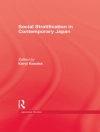Metal nanoclusters, which bridge metal atoms and nanocrystals, are gaining attention due to their unique chemical and physical properties which differ greatly from their corresponding large nanoparticles and molecular compounds. Their electronic and optical properties are of particular interest for their use in sensing, optoelectronics, photovoltaics and catalysis.
The book highlights recent progress and challenges in size-controlled synthesis, size-dependent properties, characterization and applications of metal nanoclusters. Specific topics include organochalcogenolate-stabilized metal nanoparticles, water-soluble fluorescent silver nanoclusters, thiolate-protected Au and Ag nanoclusters, DNA-templated metal nanoclusters, fluorescent platinum nanoclusters and janus nanoparticles by interfacial engineering.
Edited by active researchers in the area, the book provides a valuable reference for researchers in the area of functional nanomaterials. It also provides a guide for graduate students, academic and industrial researchers interested in the fundamentals of the materials or their applications.
สารบัญ
Mechanistic Insights into the Brust-Schiffrin Synthesis of Organochalcogenolate-Stabilized Metal Nanoparticles;
New Strategies and Synthetic Routes to Synthesize Fluorescent Atomic Quantum Clusters;
Silver Magic-Number Clusters and Their Properties;
Water-Soluble Fluorescent Silver Nanoclusters;
Silver Nanoclusters Protected by Polymers, Proteins, Peptides and Short Molecules;
Novel Synthetic Strategies For Thiolate-Protected Au and Ag Nanoclusters: Towards Atomic Precision and Strong Luminescence;
Noble Metal Clusters in Protein Templates;
Sub-Nm Metal (0) Clusters: Synthesis, Strategies and Catalytic Properties;
Metal Nanoclusters: Size-Dependent Catalytic Activity;
Metal Clusters in Catalysis;
In Silico Studies of Functional Transition Metal Nanoclusters;
DNA-Templated Metal Nanoclusters and their Applications;
Synthesis of Fluorescent Platinum Nanoclusters for Biomedical Imaging;
Janus Nanoparticles by interfacial Engineering;
เกี่ยวกับผู้แต่ง
Wei Chen received his Ph.D. in electrochemistry from Xiamen University under the direction of Professor Shi-Gang Sun in 2003. Following his graduate studies, he began working as a postdoctoral associate in the area of synthesis and the property studies of metal nanoclusters at University of California-Santa Cruz. He is currently a full professor at State Key Laboratory of Electroanalytical Chemistry, Changchun Institute of Applied Chemistry, Chinese Academy of Sciences. His research interests include the controlled synthesis, characterization, and applications of nanomaterials, especially the metal nanoclusters, in fuel cells, solar cells, optical devices; interfacial engineering and electron transfer properties of functional metal nanoparticles; surface electrochemistry, electroanalytical chemistry and spectroelectrochemistry.
Shaowei Chen completed his undergraduate education at the University of Science and Technology of China with a B.Sc. degree in Chemical Physics in 1991. He then attended Cornell University, receiving his M.Sc. and Ph.D. degrees in Chemistry in 1993 and 1996, respectively. Following a postdoctoral appointment at the University of North Carolina at Chapel Hill, he started his independent career in 1998 in Southern Illinois University – Carbondale. He moved to the University of California – Santa Cruz in 2004 and is currently a Professor of Chemistry. His research is mainly focused on nanoscale functional materials and their electron transfer chemistry. So far he has published more than 100 research articles in peer-reviewed journals, co-edited two monographs and contributed five book chapters.












